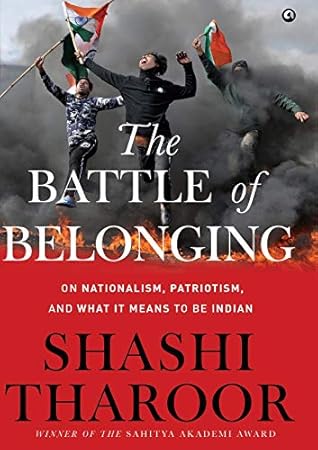More on this book
Kindle Notes & Highlights
Experience should teach us to be most on our guard to protect liberty when the government’s purposes are beneficial. Men born to freedom are naturally alert to repel invasion of their liberty by evil-minded rulers. The greater dangers to liberty lurk in insidious encroachment of men of zeal, well-meaning but without understanding.478
Democracy is essential in this construct, since one of the reasons democratic choices are accepted by those who voted otherwise is the presumption that the other side is, after all, part of the same national community and is as entitled to its choice as you are. Majoritarianism is circumscribed by the acceptance of clear restraints upon it: your rights cannot be compromised by the will of my majority. In Indian civic nationalism, patriots are willing to make some sacrifices for other patriots and for maintaining the integrity of the nation they share.
Amitai Etzioni has argued that ‘a good society cannot be centred only on liberty and individual rights but also must attend to the common good, expressed in terms of social responsibilities to others and to one’s communities’.479 If we accept that we have many local communities that together make up our national community, and that our common good can be balanced with respect for both community and individual rights and interests, we can overcome the divisive polarization that currently bedevils our politics.
Our New India must be an India that respects all religions, all faiths, all beliefs, all cultures, all languages, all regions, all castes, all classes—and all individual citizens. That idea of India is under threat today from those who seek not just to rule India, but to change India’s very heart and soul into something it has never been and was never meant to be. Our patriotism must be anchored in unity, not division; promote inclusion, not exclusion; encourage all identities, and privilege none; encourage growth and uplift the downtrodden. It must celebrate a sense of belonging, not
...more
We can have a New India that belongs to all of us, led by a government that works for all of us. Or we can have a New India that belongs to some, and serves the interests of a few. That is the difference between the civic nationalism enshrined in the constitutional republic and the ethno–religious–linguistic nationalism of the Hindutva movement.
When J. B. S. Haldane acquired Indian citizenship late in life, he wrote, in response to being hailed as a ‘citizen of the world’: No doubt I am in some sense a citizen of the world. But I believe with Thomas Jefferson that one of the chief duties of a citizen is to be a nuisance to the government of his state. As there is no world state, I cannot do this [as a ‘citizen of the world’]. On the other hand, I can be, and am, a nuisance to the government of India, which has the merit of permitting a good deal of criticism, though it reacts to it rather slowly. I also happen to be proud of being a
...more


